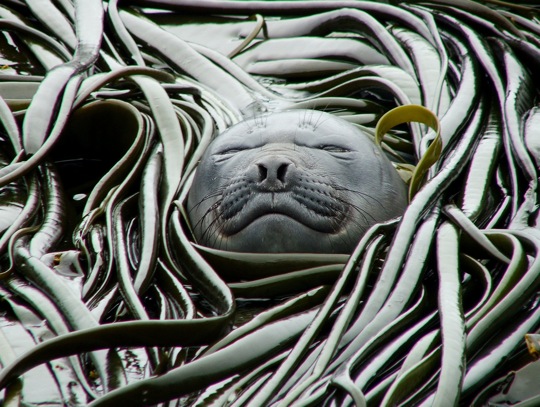Ocean Creatures In A Warmer World
A new study finds that some marine organisms may have to move fast if they want to survive climate change
/https://tf-cmsv2-smithsonianmag-media.s3.amazonaws.com/filer/20111118110024sea_slug_web.jpg)
It’s gonna get messy, particularly in the oceans. That seems to be the message in a recent Science study that analyzed the pace of climate change.
Using 50 years of observations, “we examined the velocity of climate change (the geographic shifts of temperature bands over time) and the shift in seasonal temperatures for both land and sea,” said John Pandolfi of the University of Queensland. “We found both measures were higher for the ocean at certain latitudes than on land, despite the fact that the oceans tend to warm more slowly than air over the land.”
The changes won’t be uniform, the scientists say. And some marine organisms will have to migrate hundreds of miles to new waters to find the right temperature, seasonal conditions and food. Those that don’t move fast enough could easily become extinct.
And it isn’t as simple as moving north or south toward the poles. Like most landscapes, oceans aren’t uniform. There are land masses and deep ocean trenches and strong currents that can prevent creatures from moving from one place to another. Then there’s the question of what might take the place of the organisms that currently live in the warmest parts of the oceans. “No communities of organisms from even warmer regions currently exist to replace those moving out,” Pandolfi said.
In an accompanying Perspective essay, biologist Ralf Ohlemüller of Durham University notes that “climate affects both evolutionary processes, such as how fast species diversify, and ecological processes, such as range shifts and species interactions.” And while that complexity of interactions will make predicting the coming changes difficult, Ohlemüller reminds us that studies like this one, which are not as detailed as we might like, are important nonetheless as they help us to “broaden our understanding of how environments change in space and time and how this in turn affects patterns of disappearing, persisting, and novel climates, species, and ecosystems.” And with that knowledge, perhaps we can be better prepared for the changes ahead.
Check out the entire collection of Surprising Science’s Pictures of the Week and get more science news from Smithsonian on our Facebook page.
/https://tf-cmsv2-smithsonianmag-media.s3.amazonaws.com/accounts/headshot/Sarah-Zielinski-240.jpg)


/https://tf-cmsv2-smithsonianmag-media.s3.amazonaws.com/accounts/headshot/Sarah-Zielinski-240.jpg)